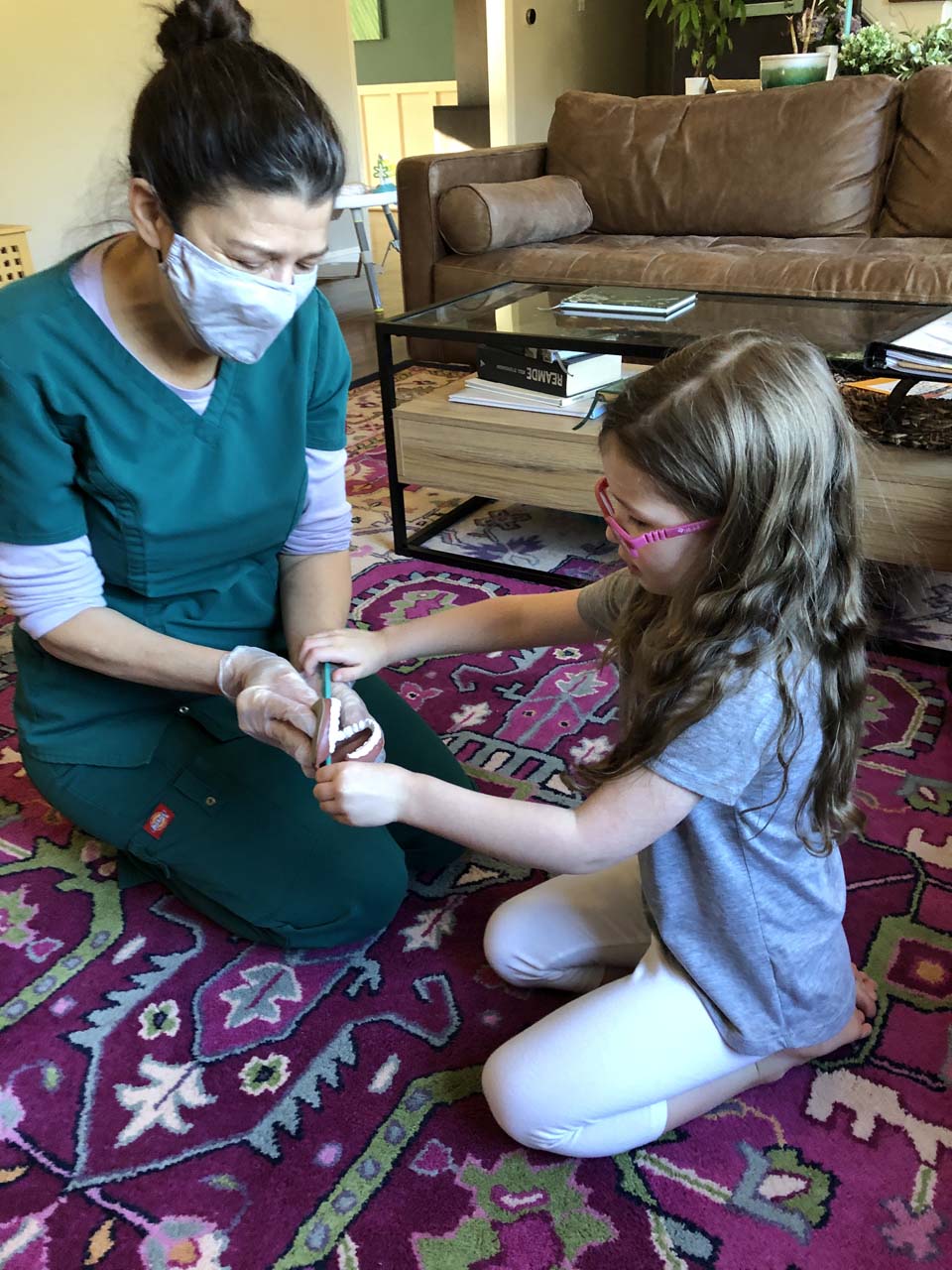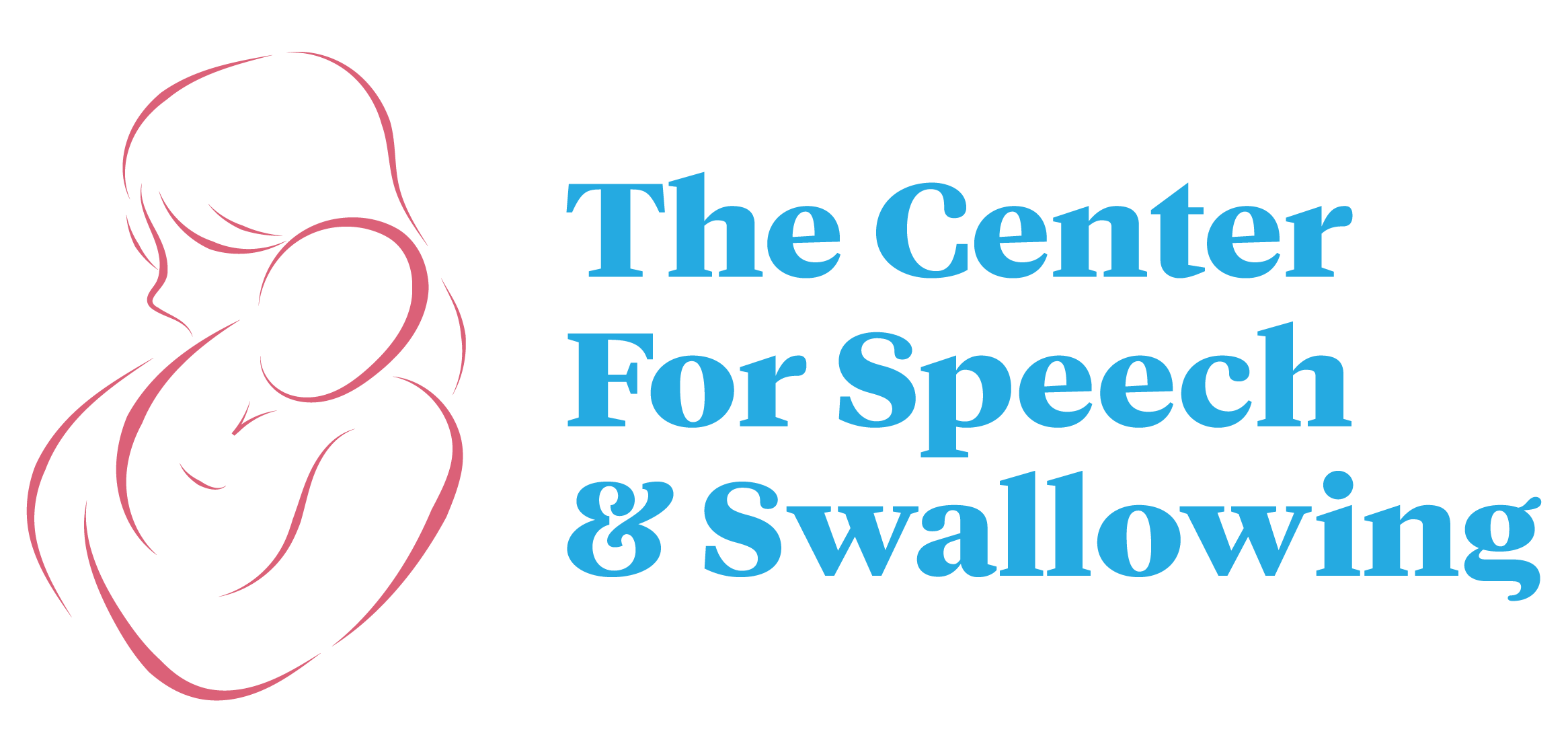Tongue & Lip Tie Treatment in Richmond, VA
What Is a Tongue Tie?
Also known as Tethered Oral Tissues, a tongue tie, lip tie, or buccal tie occurs when the connective tissue under the tongue, upper lip, or in the cheek/gum area is too tight. This may result in difficulty with breast or bottle feeding, eating, speech, or other difficulties.
The difficulty may present as a mechanical issue with latching or swallowing, but may also result in symptoms such as reflux, poor sleep, grinding teeth, speech errors, and other difficulties related to the oral mechanism.
A tongue tie is sometimes noticeable in infancy, but many times does not become apparent until later in childhood or into adulthood. Treatment approaches vary depending on the age when symptoms become apparent.


Symptoms of Tongue or Lip Tie in Infants
- Difficult or painful latch
- Unable to flange upper lip
- Biting/Chewing the nipple
- Falling asleep while feeding
- Spitting up/Reflux
- Gassy/Colic like symptoms
- Clicking/Smacking noises when eating
- Gagging/Choking when eating
- Milk leaking from mouth
- Signs of frustration at breast or bottle
- Taking a long time to eat/eating frequently
- Mouth breathing/Snoring
- Nipple shield required
- Mother has sore nipples, mastitis, clogged ducts, or thrush
Infant Tongue & Lip Tie Evaluation
Evaluation of the infant will include a thorough examination of the oral structures, craniosacral fascial work to release the fascia that may affect feeding, and assessment of feeding as well as problem solving to improve the feeding experience for mother and baby. If there is a tongue/lip tie which is severe enough to require a release (frenectomy), referral will be made to a qualified professional.
Infant Tongue & Lip Tie Treatment
Treatments will include follow-up wound care if frenectomy was completed, oral strengthening to improve tongue, lip, and cheek strength for feeding, strategies to maximize correct feeding process, and bodywork to release fascia which may interfere with ease of feeding.
Symptoms of Tongue or Lip Tie in Children
- Speech difficulty
- Rapid speech, mumbling
- Tongue protrudes during speech
- Frustration with eating
- Eating too slow or too fast
- Packing food in cheeks
- Spitting out food
- Choking/gagging on food
- Drooling
- Avoids certain textures of food
- Restless sleep/waking up easily
- Not rested in morning
- Mouth breathing/open mouth posture
- Snoring
- Grinding teeth
- Headaches
- Hyperactivity/Inattention
- High/narrow palate
- Bedwetting

Evaluation of Tongue or Lip Tie in Children
Evaluation of the child will include a unique interdisciplinary approach. A speech and swallowing assessment will be completed as well as examination of the oral structures and function. The swallowing portion of the evaluation will look at chewing patterns as well as food preferences and determine whether avoidance of certain textures may be related to an inability to chew or swallow properly.
This is often due to a tongue tie, therefore evaluation for tethered oral structures will be completed and appropriate referrals will be made if necessary. If speech errors are related to abnormal resting posture of the tongue, oral myofunctional techniques will be incorporated to correct tongue posture for more effective facilitation of speech sounds. The presence of a tongue tie may contribute to an oral myofunctional disorder; therefore, an Orofacial Myology evaluation will be completed to identify areas of weakness.
Treatment of Tongue or Lip Tie in Children
Treatment will include strengthening of oral structures and training proper chewing and swallowing techniques through a three-phase oral myofunctional therapy program. Craniosacral Fascial Therapy will be completed to release fascia which may impact function. If a tongue tie was identified, a referral may be made for release (frenectomy) if appropriate.
Adult Tongue & Lip Ties
When a tongue tie is not identified or managed until adulthood, it is frequently accompanied by an oral myofunctional disorder which may include abnormal resting tongue posture and lead to headaches, neck pain, jaw pain, grinding teeth, snoring, and a number of additional symptoms.
Speech production may be affected as some sounds are produced with the tongue protruding through teeth (also called “tongue thrust”), resulting in difficulty being understood. Evaluation will include an Orofacial Myology assessment and appropriate referrals made if necessary.
What Should I Do With A Tongue / Lip Tie?
- Call for a free phone consultation. As a Speech-Language Pathologist, Certified Breastfeeding Specialist, Qualified Orofacial Myologist, Craniosacral Fascial Therapist, and Tethered Oral Tissues Specialty trained therapist with over 25 years of experience, I can help determine whether you or your child may need further evaluation.
- Schedule an evaluation. This includes a visual examination of oral structures, palpation of oral and pharyngeal structures, and assessment of functional limitations.
- Receive a referral. Not all feeding and speech issues are related to Tethered Oral Tissues. However, if a tie is identified, an appropriate referral will be made for release of the tongue, lip, and/or buccal ties (also called a frenectomy) if indicated.
- Attend follow-up therapy sessions. These will include post-frenectomy wound care, feeding therapy, strengthening exercises, training tongue and lips to rest in proper position, speech therapy, and improvement of other skills as needed.
Ask Questions, Get Answers.
With thorough diagnosis, expert guidance, and versatile treatment, we’re dedicated to keeping you informed, assured and empowered.
We’re here and we’re ready to help you.

